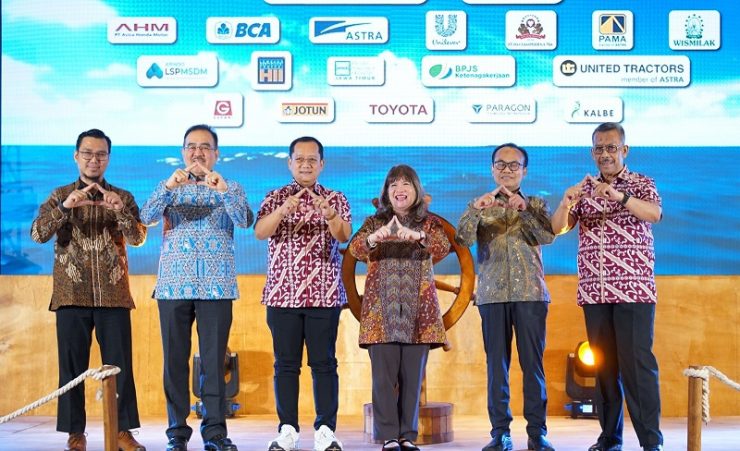THE MINISTY of Creative Economy is promoting the use of Artificial Intelligence (AI) to strengthen the gig economy, which now serves as the backbone for more than 60% of the younger generation. This strategic initiative is a response to the significant growth potential of Indonesia’s AI market, which is projected to surge from US$1.77 billion in 2023 to US$10.89 billion in 2030, despite the current low adoption and talent levels.
“More than 60% of Millennials and Gen Z work flexibly as freelancers, digital creators, and project-based creative economy activists. This evolution is characterized by the rise of the gig economy, which fosters creativity, collaboration, and autonomy,” said Dandy Yudha Feryawan, Director of New Digital Technology at the Ministry of Creative Economy, during the 11th Industrial Relations Conference.
The conference, titled “Navigating the New Dynamics of Industrial Relations in the AI Era and Industrial Resilience,” was organized by the Indonesian Employers Association (Apindo) Training Center (ATC) and took place at the Platinum Hotel in Surabaya on Tuesday, (11/04), 2025.
Dandy emphasized the significant untapped potential of the AI industry in Indonesia, underscoring the need for strategic investment and development to fully capitalize on this opportunity. He emphasized that the government, including the Ministry of Creative Economy, has a responsibility to strengthen digital literacy, reskilling, and adaptive policies so that creative workers can utilize technology without losing social protection.
“Our AI market value reached US$1.77 billion in 2023 and is projected to surge to US$10.89 billion by 2030. However, the corporate AI adoption rate is currently at 23%, and the talent pool for AI professionals stands at 1.06%. This is a substantial opportunity, but it also presents a significant challenge,” said Dandy.
The conference, which included government representatives, business leaders, academic experts, and creative activists, addressed critical issues such as workforce training, industrial decentralization, and strategies to enhance workforce quality. The goal of these discussions was to achieve a balanced approach between technology and other factors.
The conference, which involved government, business, academics, and creative activists, discussed workforce training, industrial decentralization, and improving workforce quality to maintain a balance between technological efficiency and economic equality.
Meanwhile Apindo Chairman Shinta Widjaja Kamdani underscored the need for swift adaptation to digital transformation by industry and the workforce.
“Automation and digitalization have transformed the world of work. The types of jobs have changed, as have the required skills. Digital literacy has become a critical skill for today’s professionals,” Shinta stated.
Likewise, Minister of Manpower Yassierli emphasized that digitalization and AI require a shift in perspective on industrial relations. According to Yassierli, achieving this transformation hinges on a shared understanding of productivity among workers, labor unions, and company management.
“When discussing industrial relations, we often focus on the concept of harmony. However, we must look beyond mere harmony and strive for transformative industrial relations. The key word here is productivity. If companies and labor unions can reach an understanding of this matter, many problems will be easier to resolve,” emphasized Minister of Manpower Yassierli.
At the same event, Susiwijono Moegiarso, the Secretary of the Coordinating Ministry for Economic Affairs, emphasized the government’s efforts to refine employment and digital economy policies in response to the impacts of AI and automation. He emphasized that the government will oversee the digital transformation of the industry to ensure it remains inclusive and equitable, including in the formulation of future industrial relations policies.
“It is imperative that AI be human-centered. Technology must be designed to provide tangible benefits, while upholding ethical principles, justice, and the well-being of all stakeholders,” he concluded. [traveltext.id]
















